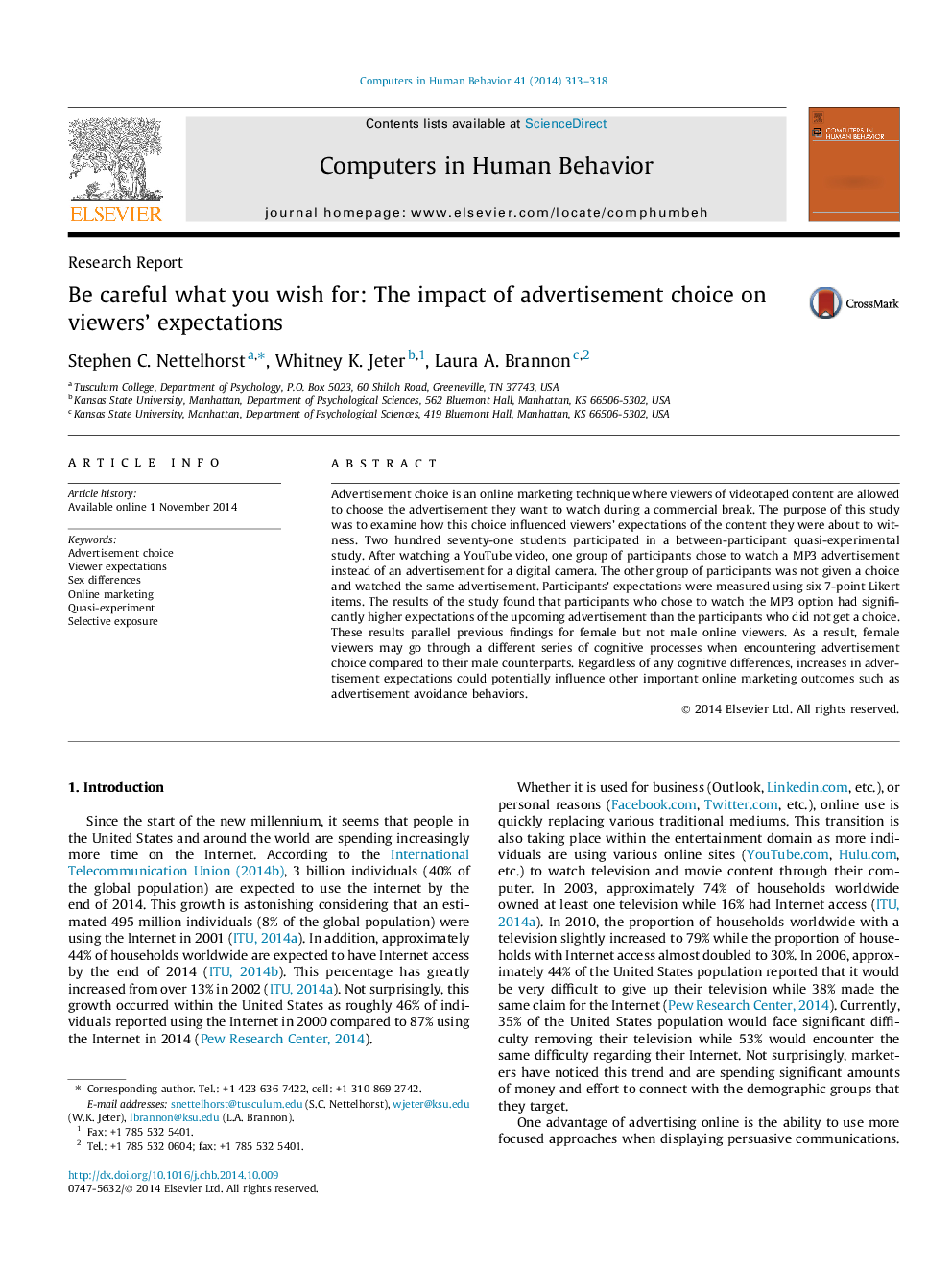| Article ID | Journal | Published Year | Pages | File Type |
|---|---|---|---|---|
| 350402 | Computers in Human Behavior | 2014 | 6 Pages |
•Some online streaming sites allow viewers to choose what type of advertisements to watch.•This study examined the effect of advertisement choice on viewers’ expectations of the upcoming persuasive message.•Female viewers had higher expectations than males regardless of advertisement choice.•Female and male viewers had higher expectations after making an advertisement choice.•Viewers’ cognitive and behavioral processes following advertisement choice may depend on whether their expectations are met.
Advertisement choice is an online marketing technique where viewers of videotaped content are allowed to choose the advertisement they want to watch during a commercial break. The purpose of this study was to examine how this choice influenced viewers’ expectations of the content they were about to witness. Two hundred seventy-one students participated in a between-participant quasi-experimental study. After watching a YouTube video, one group of participants chose to watch a MP3 advertisement instead of an advertisement for a digital camera. The other group of participants was not given a choice and watched the same advertisement. Participants’ expectations were measured using six 7-point Likert items. The results of the study found that participants who chose to watch the MP3 option had significantly higher expectations of the upcoming advertisement than the participants who did not get a choice. These results parallel previous findings for female but not male online viewers. As a result, female viewers may go through a different series of cognitive processes when encountering advertisement choice compared to their male counterparts. Regardless of any cognitive differences, increases in advertisement expectations could potentially influence other important online marketing outcomes such as advertisement avoidance behaviors.
